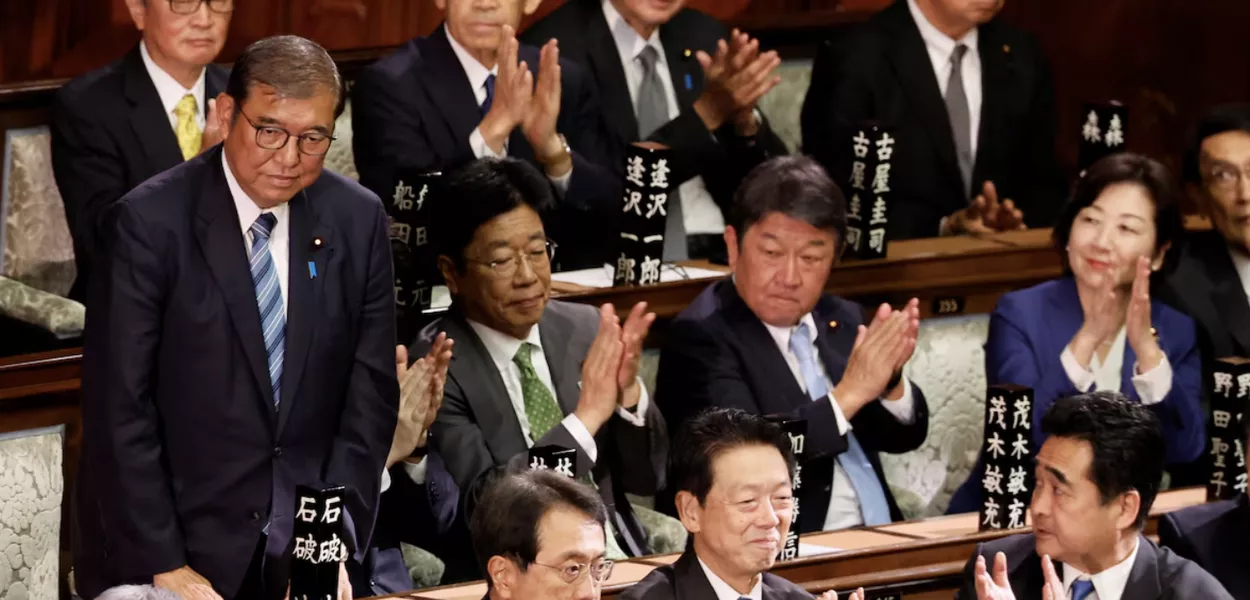
In a critical vote on Monday, Shigeru Ishiba was reappointed as Prime Minister of Japan, following a parliamentary election that saw his coalition lose its majority.
Last month’s lower house election was not favorable for Ishiba, who took office on October 1, and now faces the challenge of leading a minority government in a period of rising international tensions and domestic problems such as rising costs. of life.
The Liberal Democratic Party, led by Ishiba, and its coalition partner, Komeito, won the most seats, but this was insufficient to maintain the majority they had held since 2012. “In light of the very challenging election, we need to transform into a national party that serves the people, that empathizes with the struggles, miseries and joys of the people”, declared Ishiba at a press conference after the vote.
The vote in parliament revealed the fragility of Ishiba’s position, marking the first time in 30 years that a second round was necessary, with Ishiba winning 221 votes, more than the leader of the main opposition party and former prime minister Yoshihiko Noda , but still below the necessary majority in the 465-seat chamber.
Internal political instability coincides with a complicated return of Donald Trump to the presidency of the United States, Japan’s main ally. Relations are tense with countries such as China and North Korea, and Ishiba has international meetings scheduled, including the G20 summit in Brazil . He is also planning a stop in the United States to meet Trump, with whom he spoke briefly after his election victory.
At home, Ishiba faces the immediate challenge of passing a supplementary budget for the fiscal year through March, pressured by demands for more welfare spending and measures to mitigate inflation. Approval of the budget requires the support of at least one opposition party, with the People’s Democratic Party (DPP) emerging as a possible ally despite its leader, Yuichiro Tamaki, facing personal challenges after admitting to an extramarital affair.
Following the vote, Ishiba announced the appointment of three new ministers for the departments of transport, justice and agriculture, replacing LDP members who lost their seats in the recent election. These moves indicate an attempt to stabilize his government before the next elections for the upper house, where the governing coalition is also at risk of losing its majority.
Ishiba’s leadership is tested on both domestic and international fronts as he seeks to strengthen ties with the US and keep Japan engaged on global issues such as Ukraine and Gaza, highlighting the importance of solutions that benefit both nations.
With information from Reuters
Source: https://www.ocafezinho.com/2024/11/21/ishiba-mantem-cargo-de-primeiro-ministro-do-japao/

